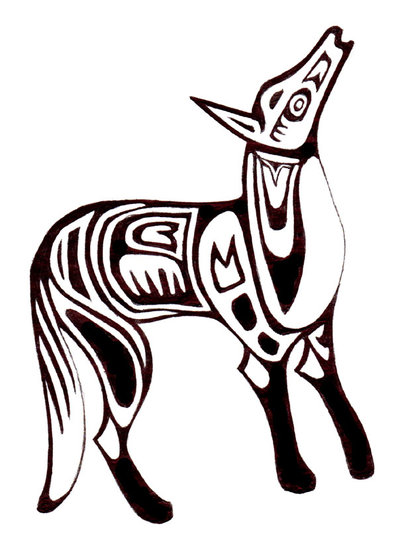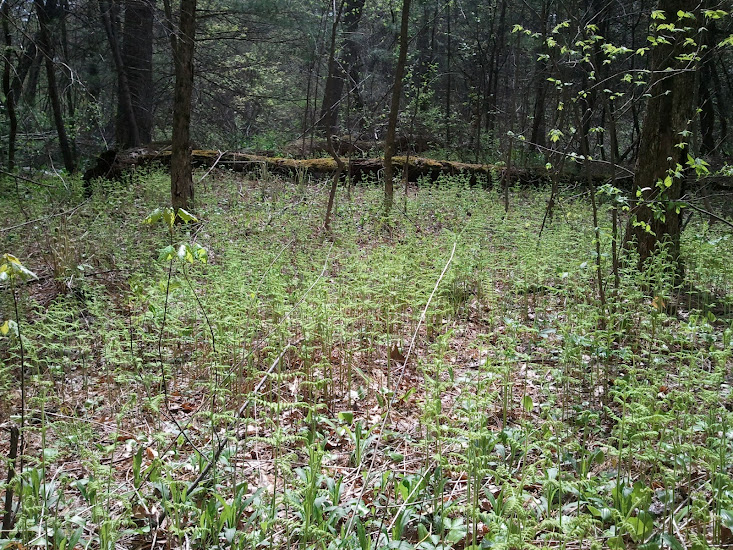 It appears that I – and my handy-dandy mammalogy textbook – were wrong on the bears-not-hibernating front. According to a fabulous bear resource I found today: www.bear.org (appropriately enough), bears DO hibernate. I know, go figure. Here’s an excerpt from their hibernating fact sheet (they say it far more eloquently than I could):
It appears that I – and my handy-dandy mammalogy textbook – were wrong on the bears-not-hibernating front. According to a fabulous bear resource I found today: www.bear.org (appropriately enough), bears DO hibernate. I know, go figure. Here’s an excerpt from their hibernating fact sheet (they say it far more eloquently than I could):
When people defined hibernation simply in terms of temperature reduction, bears were not considered hibernators. However, when biologists discovered the many metabolic changes that let black and grizzly bears hibernate up to 7 ½ months without eating, drinking, urinating, or defecating, they realized that body temperature was only a small part of hibernation.
They redefined mammalian hibernation as a specialized, seasonal reduction in metabolism concurrent with scarce food and cold weather (Watts et al. 1981).
Black bears are now considered highly efficient hibernators.
Hibernators the size of chipmunks hibernate differently. They lower body temperature to near freezing but wake up every few days to raise body temperature to near normal, eat stored food, and eliminate body wastes. Then they lower body temperature and repeat the cycle.
The confusion about what to call black bear hibernation is a matter of definition. Further confusion has arisen because it differs with region and fatness (see other exhibits).
People have called black and grizzly bear hibernation torpor, winter sleep, dormancy, and carnivorean lethargy. The leading physiologists now simply call it hibernation.
Ok. Despite the fact that my circa 2000 textbook of Mammalogy stated that bears do not hibernate (which is what I was taught in both of my mammalogy classes in grad school), bear biologists DO classify them as hibernators. My bad.
I came across the bear.org site because of a news article I heard on NPR this morning about the increase of bear populations in many states, which has lead to a review of hunting policies regarding black bears in some places. It seems that some states are surveying residents to weigh popular opinion about bears, with the idea of potentially relaxing hunting regulations.
I’m of two minds about this. My initial reaction was to be sad and frustrated that instead of finding ways to better educate the public about bear safety, states and municipalities are just turning to the same old methods – killing them.
But in thinking about it further, I thought about the deer population here in the northeast, and how large in is in many states. Human hunting isn’t enough to control this species. And I’ve got to imagine that even with regulations lifted, bear hunting wouldn’t become as popular as deer hunting. It’s the idea of hunting with dogs that I find distressing – that has the potential for unnecessary cruelty to the hunted animal. But I know many hunters here in New England, and none of them hunt bears with dogs, so how prevalent is that in other parts of the country?
Another factor is the realistic fact that living around bears can be scary – no matter how much you know about them. Population control is certainly not a bad thing – I just don’t want to see it taken to the extreme.
How do you feel about the idea of having bears in your backyard or neighborhood? How aggressively would you want your state or county to regulate their populations?


You pose a good question. I don’t particularly feel comfortable living with a bear in my backyard. Of course, I live in a busy downtown area, so I’d like to think I’m avoiding bears here. That said, a black bear was spotted not too far from my town in a neighborhood (that I can walk to). I believe there is black bear hunting here in Maine, though not close to where I live. There’s so much of our state that is still wilderness. I’d hate to hear of a “bear season” unless it was absolutely necessary.
Jennifer, Maine does have bear hunting seasons, as does New Hampshire, MA and VT. I was talking with a hunter friend of mine, and he said bear hunting without dogs is really difficult, due to their large home range. Using dogs doesn’t harm the bears I was glad to hear, at least not physically. The dogs are radio-collared, and when they pick up a bear’s scent, the chase the bear up a tree and then the owner can locate the dogs and bear through the radio collars. My friend says Vermont allows bear hunting with dogs, but MA doesn’t. I don’t know about NH and ME.
Weighing the risks of having bears in and near suburban and urban areas is going to become more and more necessary, as the bear populations in New England continue to grow. I guess my feeling is that I’m pro-bear hunting, as long as it’s done ethically.
This is an interesting post because I had just received an answer to an e-mail I sent after watching a black bear cave cam at Bears.Org about this very question…Many people are very afraid and I think it would be a problem for bears and humans as we don’t even like fox or coyote in our neighborhoods, but bears are becoming more common.
On Wed, Feb 15, 2012 at 11:31 AM, ramblingwoods wrote:
I live outside of Buffalo NY in western NY state. We have had young male black bears who moved through the town twice in the last 3 years. I am part suburban and part rural. The first male was seen at a bird feeder and them moved to the woods across the pond from us. The police called out a swap team to shoot the poor animal. I was furious and called the DEC to talk to their so-called bear expert and he said it is too dangerous to tranquilize them and move them back downstate so it is kinder to shoot them.
There was a public outcry and the next time a young male was passing through they told people to stay away and let it makes it’s way north on it’s own…
I think this sounds more reasoned than shooting it, but I also see that tranquilizing it can be a problem….Michelle..
Hi Michelle,
Kudos to the public! Sounds like they put enough pressure on the DEC for them to chose a different tactic the second time around. I’m assuming the second bear made it out of the area on its own.
Generally the young males are just moving through. They don’t pose any serious danger. The most important thing is for people to stay away — give the bear plenty of space so it isn’t stressed. If treed, they may come down and slip away under the cover of darkness when they feel safer.
Sincerely,
Sue Mansfield
—
Sue Mansfield
Wildlife Research Institute
Ely, Minnesota
Bear Den Cam
Very interesting timing – you and I seem to be on a similar wavelength! As I said in my reply to Jennifer’s post, I’m pro-bear hunting for several reasons, but in addition to being sure that it’s done ethically, I think public education about our bigger wild animals – coyotes, fishers and bear especially – needs to go hand-in-hand with whatever regulations states and counties put into place. Here in MA, our state fish and wildlife agency (Mass Wildlife) does a really good job with education – I just don’t know how many people they’re able to reach. I think that’s a challenge for all outdoor/environmental educators. Hence why I changed the focus of my blog last year to supplement my educational programs!